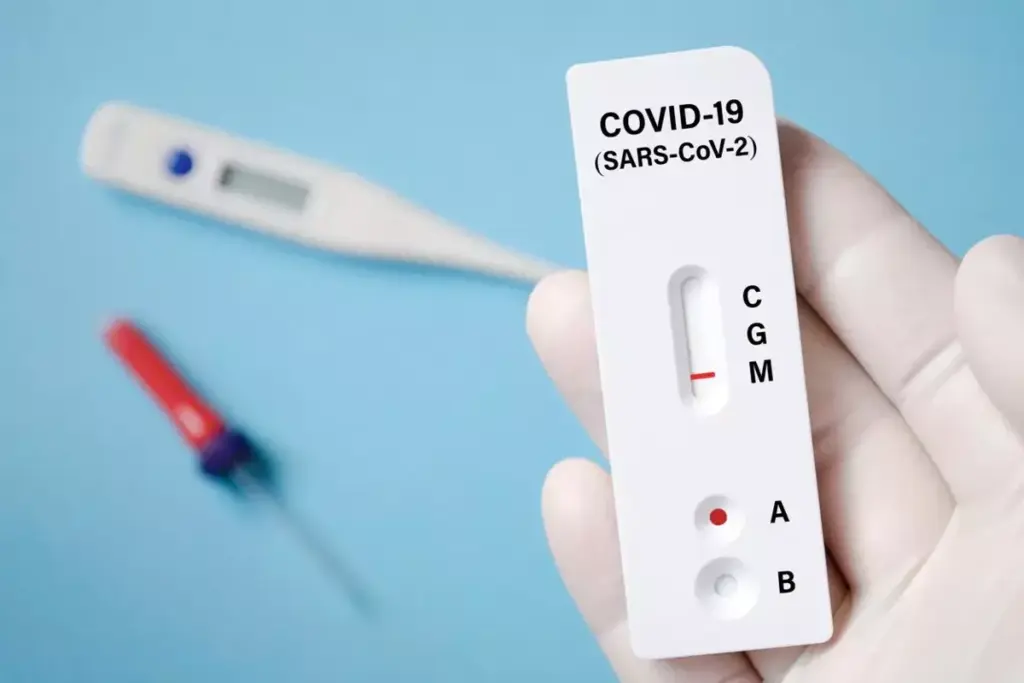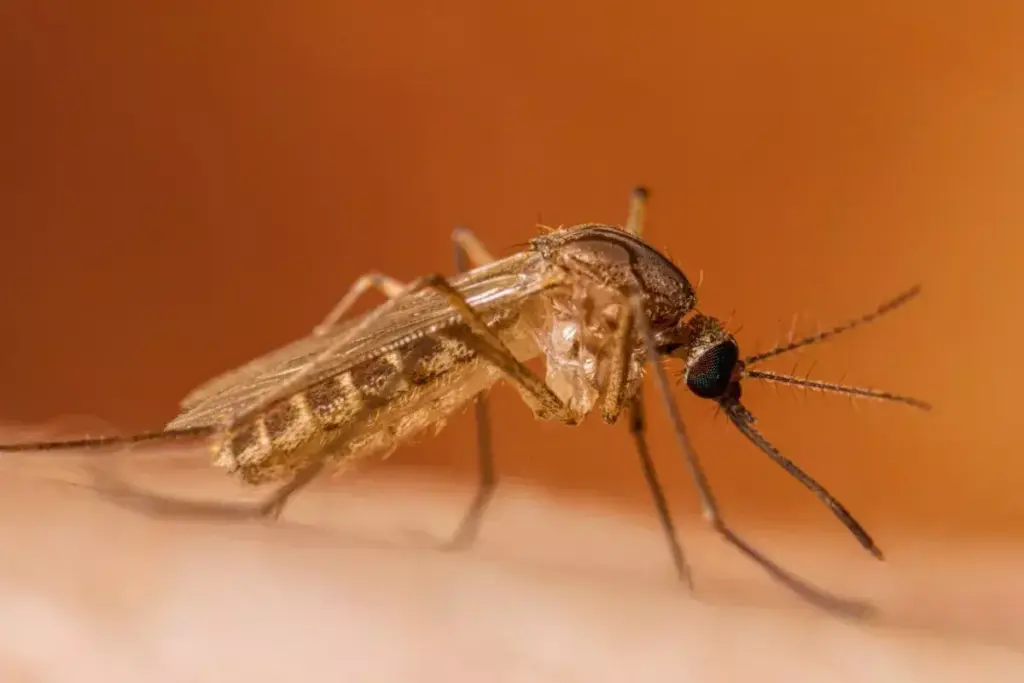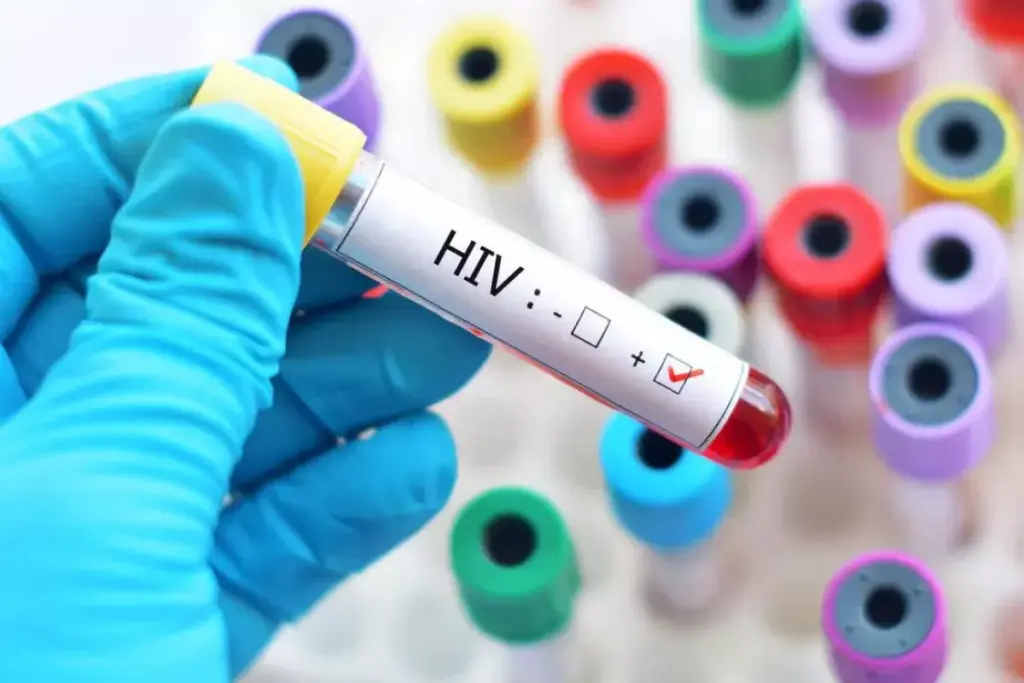
Knee pain is a significant global issue, impacting millions of individuals. It can make life harder and limit how we move. A big concern is how nutritional deficiencies affect our knees. Studies show that not getting enough vitamins and minerals can lead to knee pain.
Vitamin D deficiency is a major issue for knee pain. Vitamin D helps keep bones and joints strong. We’ll look into how not getting enough vitamins, like vitamin D, can cause knee pain and why eating right is key for healthy knees.
Key Takeaways
- Nutritional deficiencies can negatively affect joint health, leading to knee pain.
- Vitamin D deficiency is linked to knee pain.
- Adequate nutrition is essential for maintaining healthy knees.
- Knee pain can be managed and prevented through dietary adjustments.
- Understanding the link between nutrition and knee health is critical.
The Link Between Nutritional Deficiencies and Knee Pain

What we eat affects our joints more than we think. Nutritional deficiencies can negatively affect joint health, leading to knee pain. Understanding this connection allows us to address knee pain at its root rather than merely alleviating symptoms.
How Nutrients Support Joint Structure and Function
Nutrients are key to keeping our joints healthy. Vitamin D, calcium, and magnesium are vital for bones. Vitamin D controls calcium levels, which is important for bone strength. Magnesium helps with bone and muscle health, lowering knee pain risk.
Omega-3 fatty acids also play a role. They fight inflammation, easing knee pain symptoms. Eating foods rich in these nutrients can help keep joints healthy and prevent knee pain.
Recognizing Deficiency-Related Knee Symptoms

Spotting symptoms of knee pain from nutritional deficiencies is the first step. Pain, stiffness, and limited knee mobility are common signs. In severe cases, it can lead to osteoarthritis.
Health experts stress the importance of a balanced diet for joint health. Getting enough nutrients can lower knee pain risk and support joint well-being.
Vitamin D Deficiency: Sunlight Exposure Limited Cause
Vitamin D deficiency is a growing concern, mainly for those who don’t get much sunlight. Spending more time indoors increases the risk of this deficiency. Vitamin D is key for bone health, and lacking it can cause bone loss and higher osteoarthritis risk.
Bone Density Loss and Osteoarthritis Risk
Vitamin D helps our bodies absorb calcium and build strong bones. Without enough, bones can weaken and break more easily. This can also lead to osteoarthritis, a disease that affects joints and quality of life. Keeping vitamin D levels up is important to prevent bone loss and lower osteoarthritis risk.
- Vitamin D helps regulate calcium levels in the body.
- Adequate vitamin D is necessary for bone mineralization.
- Deficiency can lead to increased risk of fractures.
Testing 25-Hydroxyvitamin D Levels
Healthcare professionals test 25-hydroxyvitamin D levels to check for deficiency. This blood test shows how much vitamin D you have. If your levels are low, talk to your doctor about what to do next.
The test results can be categorized as follows:
| Vitamin D Level | Status |
| Less than 20 ng/mL | Deficient |
| 20-29 ng/mL | Insufficient |
| 30 ng/mL or greater | Adequate |
Vitamin D3 Supplementation Guidelines
If you have a vitamin D deficiency, taking vitamin D3 supplements is often advised. The amount you should take depends on how severe your deficiency is and your health. Always follow your doctor’s advice to ensure you’re taking the right amount.
- Consult with a healthcare provider before starting supplementation.
- Follow the recommended dosage based on your specific needs.
- Monitor your vitamin D levels regularly to adjust supplementation as needed.
Calcium Deficiency and Knee Joint Vulnerability
A lack of calcium can cause bones to thin and raise the risk of osteoporosis. This affects the knee joint’s stability. Calcium is key for strong bones, and not enough can make the knee more prone to pain and injury.
Bone Thinning and Osteoporosis Risk
Not getting enough calcium means our bodies take it from our bones. This leads to bone thinning and a higher risk of osteoporosis. Osteoporosis can weaken the bones around the knee, making them more likely to break or wear down.
Dietary Sources: Dairy, Greens, and Broccoli
There are many foods rich in calcium to help keep bones strong. Dairy like milk and cheese, leafy greens like kale and spinach, and broccoli are good sources. Eating these foods can greatly help our bone health.
| Food | Calcium Content per Serving |
| Milk (1 cup) | 300 mg |
| Kale (1 cup cooked) | 200 mg |
| Broccoli (1 cup cooked) | 70 mg |
Parathyroid Hormone Imbalance Effects
Parathyroid hormone (PTH) helps control calcium levels in our blood. An imbalance in PTH can cause too much or too little calcium. Both can harm bone health and knee joint stability. It’s important to understand how PTH imbalance affects calcium levels.
Magnesium Deficiency: Muscle Cramps and Joint Instability
Magnesium is a key mineral that helps prevent muscle cramps and joint issues. It’s vital for keeping muscles and joints healthy. Without enough magnesium, our bodies can feel pain and discomfort.
Electrolyte Imbalance and Muscle Function
Magnesium helps keep the right balance of electrolytes in our bodies. This balance is key for muscle health. Without it, muscles can cramp, spasm, and weaken.
Keeping magnesium levels right is key to avoiding muscle cramps. It’s also important for those with knee pain, as it helps reduce muscle tension.
Food Sources: Nuts, Seeds, and Spinach
Eating foods high in magnesium is a great way to stay healthy. Nuts, seeds, and spinach are all good sources. Adding these to your diet can help your muscles and joints.
We advise eating a variety of magnesium-rich foods. A balanced diet helps keep your body’s muscles and joints healthy. This can lower the chance of knee pain.
Supplementation and Epsom Salt Baths
If you can’t get enough magnesium from food, supplements can help. There are many types of magnesium supplements. Epsom salt baths are also a good way to get magnesium through your skin.
Before starting supplements, talk to a doctor to find the right one for you. Epsom salt baths can be a soothing way to get magnesium and ease muscle and joint pain.
Vitamin C Deficiency and Collagen Breakdown
Vitamin C is key for healthy joints by helping make collagen. Collagen is important for our skin, bones, and cartilage. Without enough vitamin C, our bodies can’t make enough collagen, leading to breakdown.
Cartilage Health and Antioxidant Protection
Cartilage health depends on vitamin C levels. Vitamin C fights off free radicals, protecting cells. This helps keep cartilage healthy and stops collagen from breaking down. Getting enough vitamin C can help keep cartilage strong and reduce knee pain.
Scurvy: Rare but Serious Joint Implications
Scurvy, caused by too little vitamin C, harms joints. It’s rare today but can happen in people with very bad diets or health issues. Scurvy causes joint pain, swelling, and stiffness. Seeing a doctor quickly is key to treating scurvy and avoiding joint damage.
Dietary Sources: Citrus, Peppers, and Berries
Vitamin C is easy to get from food. Oranges, grapefruits, and peppers are full of it. Berries and leafy greens are also good sources. Eating more of these foods helps keep joints healthy.
Here are some top vitamin C foods:
- Citrus fruits like oranges, lemons, and grapefruits
- Berries like strawberries, blueberries, and raspberries
- Peppers, both sweet and hot varieties
- Leafy greens like spinach and kale
Eating these foods helps keep vitamin C levels up. This supports collagen production and joint health.
Omega-3 Fatty Acid Deficiency and Inflammation
Not having enough omega-3 fatty acids can lead to inflammation. This can make knee pain worse. Omega-3s, like EPA and DHA, fight inflammation. They help keep joints healthy and reduce arthritis flare-ups.
EPA and DHA for Reducing Arthritis Flare-ups
EPA and DHA are key omega-3s found in fish oil. They are important for fighting inflammation and easing arthritis symptoms. “The anti-inflammatory effects of omega-3 fatty acids can help mitigate the severity of arthritis flare-ups,” making them key for managing knee pain.
Food Sources: Fish Oil, Flaxseeds, and Walnuts
Eating foods high in omega-3s can help avoid deficiency. Fish oil, flaxseeds, and walnuts are great options. They naturally increase omega-3 levels and support joint health.
Optimal Supplementation Strategies
If diet alone isn’t enough, supplements can help. Choose supplements with a good EPA to DHA ratio. Always talk to a healthcare professional to find the right dose for you.
B Vitamin Deficiencies Affecting Knee Health
B vitamins are key for knee health. They help nerves work right and prevent pain. Eating right or taking supplements is important for health.
Vitamin B12: Nerve Pain and Pernicious Anemia
Vitamin B12 is vital for nerve health. Without enough, you might feel nerve pain and get pernicious anemia. These issues can hurt your knees.
Nerve pain happens when nerves get damaged. It can make your knees hurt. Pernicious anemia, caused by Vitamin B12 lack, also hurts knees by making red blood cells unhealthy.
- Animal products like meat, fish, and dairy have Vitamin B12.
- Some people need supplements because of diet or absorption problems.
Folate Deficiency and Homocysteine Levels
Folate, or Vitamin B9, is important for many body functions. It helps break down homocysteine. High homocysteine levels can lead to joint pain and osteoarthritis.
Leafy greens, legumes, and fortified cereals are full of folate. People with low folate or at risk might need supplements.
Vitamin B6 and Nerve Inflammation
Vitamin B6 is vital for nerve health. It helps prevent nerve inflammation, which can cause knee pain. Not having enough Vitamin B6 can lead to nerve symptoms, including knee pain and inflammation.
Eating foods high in Vitamin B6, like poultry, fish, and potatoes, helps keep levels up. Sometimes, doctors suggest supplements.
Mineral Deficiencies Contributing to Knee Pain
Many minerals are key for healthy joints. Not having enough can cause knee pain. We’ll look at how certain mineral shortages lead to knee pain and how to fix them.
Iron Deficiency: Anemia, Fatigue, and Joint Health
Recognizing when to consult a specialist for knee pain potentially related to nutritional deficiencies is crucial.
Iron is found in red meat, poultry, fish, beans, and some cereals. Sometimes, taking iron supplements is needed. But, always do this under a doctor’s watch to avoid too much iron.
Zinc Deficiency: Immune Function and Recovery
Zinc is vital for your immune system, healing wounds, and making proteins. Not enough zinc can weaken your immune system, causing more inflammation and knee pain. Taking zinc can help with joint health and recovery from injuries.
You can find zinc in oysters, beef, chicken, pork, and some cereals. It’s important to get enough zinc to keep your immune system strong and your joints healthy.
Selenium and Thyroid Impact on Knee Health
Selenium is a mineral that fights cell damage and helps your thyroid work right. Your thyroid controls how your body uses energy. Not enough selenium can mess up your thyroid, leading to knee pain because of inflammation and changes in how your body works.
You can get selenium from Brazil nuts, fish, turkey, and beef. It’s important to have enough selenium to keep your thyroid working well and your joints healthy.
Trace Minerals: Copper, Manganese, and Silicon
Trace minerals like copper, manganese, and silicon are important for your joints. Copper helps your connective tissue, manganese is key for bone health, and silicon is good for bones and cartilage. Not having enough of these minerals can hurt your joints and cause knee pain.
You can find these minerals in nuts, seeds, whole grains, and some vegetables. Eating a balanced diet with enough of these minerals is important for keeping your joints healthy and preventing knee pain.
Protein and Amino Acid Deficiencies
Protein and amino acids are key to preventing muscle loss and sarcopenia. Protein is vital for muscle health. Without enough, muscles can waste, leading to weakness, mainly in the elderly.
Muscle Atrophy and Sarcopenia in the Elderly
Muscle atrophy is when muscles shrink due to aging or poor nutrition. Sarcopenia is losing muscle mass and strength with age. Both are linked to not getting enough protein and amino acids.
Older adults need enough protein to avoid sarcopenia. This condition makes moving harder and raises the chance of falls and broken bones. So, it’s important for them to eat enough protein to keep their muscles strong.
Complete Protein Sources for Joint Repair
It’s important to eat complete protein sources for muscle repair. Complete proteins have all nine amino acids the body can’t make. Foods like lean meats, fish, eggs, dairy, and soy are good examples.
Eating these foods helps keep muscles around joints healthy. Healthy muscles support and stabilize joints better, which can lower injury and disease risks.
| Protein Source | Amino Acid Profile | Benefits for Joint Health |
| Lean Meats (Chicken, Turkey) | Complete protein with all essential amino acids | Supports muscle mass around joints |
| Fish (Salmon, Tuna) | Rich in omega-3 fatty acids and complete protein | Reduces inflammation and supports joint health |
| Eggs | Complete protein with high bioavailability | Essential for muscle repair and maintenance |
| Dairy Products (Milk, Yogurt) | Complete protein with calcium | Supports bone health and muscle function |
Eating complete protein sources helps keep muscles strong. This can lower the risk of knee pain from muscle loss and sarcopenia.
Hydration Deficiency and Joint Lubrication
Keeping our bodies hydrated is key to keeping our joints lubricated. Hydration affects the viscosity and effectiveness of synovial fluid. This fluid is vital for reducing friction between cartilage and joints.
Synovial Fluid Viscosity and Water Intake
Synovial fluid is essential for joint lubrication. It reduces friction and absorbs shocks. Our water intake affects its viscosity.
Factors Affecting Synovial Fluid Viscosity:
- Adequacy of water intake
- Presence of nutrients and electrolytes
- Overall health of the joint
A study found that synovial fluid viscosity is key to joint health. Drinking enough water is a simple way to keep joints healthy.
“Hydration is key to maintaining the delicate balance of fluids within the body, including the synovial fluid that lubricates our joints.”
Electrolyte Balance for Optimal Hydration
Water intake is important, but so is electrolyte balance. Electrolytes help regulate body fluids and are vital for muscle and nerve function. An imbalance can cause muscle cramps and joint instability.
| Electrolyte | Role in Hydration | Food Sources |
| Sodium | Regulates fluid balance | Table salt, soy sauce |
| Potassium | Maintains fluid balance and nerve function | Bananas, avocados |
| Calcium | Essential for muscle function | Dairy products, leafy greens |
To stay hydrated and balanced, eat foods rich in electrolytes and drink enough water. Check your hydration by looking at your urine color. If it’s pale yellow, you’re good.
Hormonal Deficiencies Affecting Knee Joints
Hormones are key to keeping our joints healthy. When their levels drop, we might feel knee pain. Hormones help our body work right, including keeping our knee joints in good shape.
Estrogen Decline During Menopause
Menopause brings a big change: less estrogen. This hormone helps protect our joints. Without enough, joints can start to hurt and feel uncomfortable. Women after menopause are more likely to get osteoarthritis, showing how important estrogen is for joints.
Estrogen replacement therapy might help some symptoms. But, it’s important to talk to a doctor about the good and bad sides of it.
Low Testosterone in Men and Joint Pain
Low testosterone in men can cause joint pain and weaker bones. This hormone helps keep muscles and bones strong. When it’s low, we might gain fat, lose muscle, and have weaker bones, all leading to knee pain.
“Testosterone replacement therapy can be an effective treatment for men with low testosterone and joint pain, but it should be undertaken under the guidance of a healthcare professional.”
Cortisol Imbalance and Inflammation
Cortisol is our body’s stress fighter. But too much can cause inflammation, making knee pain worse. An imbalance can mess up our body’s fight against inflammation, leading to more pain in the knees.
Stress management, like meditation or yoga, can help control cortisol. Getting enough sleep and eating well are also key for keeping hormones balanced.
Gut Health and Nutrient Absorption
The balance of our gut microbiome is key for nutrient absorption. It affects our health and can influence knee pain. A healthy gut microbiome helps digest and absorb nutrients, supporting joint health.
When our gut microbiome is out of balance, nutrient absorption problems can occur. This imbalance can lead to inflammation and knee pain.
Microbiome Deficiency and Dysbiosis
A lack of good microbes or dysbiosis hinders nutrient absorption. Dysbiosis happens due to poor diet, stress, or antibiotics.
Dysbiosis affects not just the gut but overall health. A study showed people with dysbiosis often have joint pain and inflammation.
“The gut-joint axis is a complex interplay between the gut microbiome, the immune system, and the joints. An imbalance in the gut microbiome can lead to increased inflammation and joint pain.”A leading researcher in the field of gastroenterology and rheumatology.
Leaky Gut and Systemic Inflammation
Leaky gut syndrome happens when the gut lining gets too permeable. This lets toxins and undigested food into the bloodstream. It can cause systemic inflammation, affecting joints and leading to knee pain.
Research shows leaky gut can lead to pro-inflammatory cytokines. These cytokines can worsen joint inflammation.
| Condition | Effect on Gut Health | Potential Impact on Knees |
| Dysbiosis | Impaired nutrient absorption | Increased risk of knee pain |
| Leaky Gut | Systemic inflammation | Exacerbated knee pain and inflammation |
Knowing how gut health affects knee pain can help us manage knee health. We can make dietary changes, use probiotics, or other interventions to balance our gut microbiome.
Testing and Diagnosing Nutritional Deficiencies
Understanding the role of nutritional deficiencies in knee pain requires a detailed approach. We will look at the methods used to test and diagnose these deficiencies. This ensures that people get the right treatment for their knee pain.
Blood Panels for Nutritional Assessment
Comprehensive blood panels are key in diagnosing nutritional deficiencies. These panels check for vitamins and minerals like vitamin D, calcium, magnesium, and iron. By looking at these levels, doctors can spot deficiencies that might cause knee pain.
Key components of these blood panels include:
- Complete Blood Count (CBC)
- Vitamin D (25-hydroxyvitamin D)
- Magnesium and Calcium levels
- Iron and Ferritin levels
- B Vitamin levels (including B12 and Folate)
| Nutrient | Test Name | Significance |
| Vitamin D | 25-hydroxyvitamin D | Essential for bone health and calcium absorption |
| Calcium | Serum Calcium | Critical for bone density and muscle function |
| Magnesium | Serum Magnesium | Important for muscle and nerve function |
Advanced Diagnostic Techniques
There are specialized tests beyond standard blood panels. These tests give more insight into nutritional deficiencies and their effect on knee health. They might check for specific nutrient deficiencies, genetic predispositions, or gut health and nutrient absorption.
Specialized testing methods may involve:
- Genetic testing for nutrient metabolism
- Gut health assessments
- Nutrient absorption tests
Recognizing when to consult a specialist for knee pain potentially related to nutritional deficiencies is crucial.
Recognizing when to consult a specialist for knee pain potentially related to nutritional deficiencies is crucial. Doctors can guide on the right tests and treatments. This ensures that any underlying deficiencies are properly addressed.
Indicators for consulting a specialist include:
- Persistent or severe knee pain
- Nutritional deficiencies can negatively affect joint health, leading to knee pain.
- Presence of other symptoms like fatigue or muscle cramps
Conclusion
Knee pain can be caused by nutritional deficiencies. We’ve looked at how vitamins D, calcium, and magnesium affect knee health. Understanding these links is key to treating knee pain.
Knowing how diet impacts knee health helps us prevent pain. A balanced diet is vital for healthy joints. It reduces the chance of knee pain.
Good health comes from a mix of nutrition, staying hydrated, and supplements when needed. We suggest talking to doctors to find and fix nutritional gaps that cause knee pain.
FAQ
What are the common nutritional deficiencies that can cause knee pain?
Nutritional deficiencies that can lead to knee pain include vitamin D, calcium, and magnesium. Also, vitamin C, omega-3 fatty acids, and B vitamins are important. Mineral deficiencies like iron, zinc, and selenium can also cause knee pain.
How does vitamin D deficiency contribute to knee pain?
A lack of vitamin D can cause bone density loss. This increases the risk of osteoarthritis and can lead to knee pain.
What are the dietary sources of calcium that can help prevent knee pain?
Foods rich in calcium include dairy products, greens, and broccoli. These are key for keeping bones healthy and preventing knee pain.
How does magnesium deficiency affect knee health?
Not having enough magnesium can cause muscle cramps and joint instability. It can also lead to an imbalance of electrolytes, which can cause knee pain.
What is the role of vitamin C in maintaining healthy cartilage and preventing knee pain?
Vitamin C is vital for making collagen. Without enough, cartilage can break down, leading to knee pain.
How do omega-3 fatty acids help reduce inflammation and knee pain?
Omega-3 fatty acids, like EPA and DHA, have anti-inflammatory effects. They can help reduce arthritis flare-ups and knee pain.
What are the consequences of B vitamin deficiencies on knee health?
Lack of B vitamins, such as B12, folate, and B6, can cause nerve pain and inflammation. This can lead to knee pain.
How do mineral deficiencies like iron, zinc, and selenium impact knee health?
Deficiencies in minerals like iron, zinc, and selenium can cause anemia and affect the immune system. This can lead to knee pain.
What is the importance of protein and amino acids for knee health?
Protein and amino acids are important for muscle mass and joint health. Without enough, muscles can atrophy and joints can suffer.
How does hydration deficiency affect joint lubrication and knee health?
Not enough water can make synovial fluid less viscous. This can cause friction and lead to knee pain.
What is the impact of hormonal deficiencies on knee health?
Hormonal changes, like those during menopause or low testosterone, can affect joints. This can lead to knee pain.
How does gut health and microbiome deficiency affect knee health?
Poor gut health and a lack of beneficial bacteria can lead to malabsorption and inflammation. This can contribute to knee pain.
What are the diagnostic methods for testing nutritional deficiencies that may be causing knee pain?
To find the cause of knee pain, doctors use blood panels and specialized tests. They may also consult with specialists.
References
- Zheng, S., Wang, Y., & Chen, Y. (2021). The role of vitamin D in musculoskeletal health: A narrative review. Journal of Orthopaedic Surgery and Research, *16*(1), 76. https://www.ncbi.nlm.nih.gov/pmc/articles/PMC7875441/










